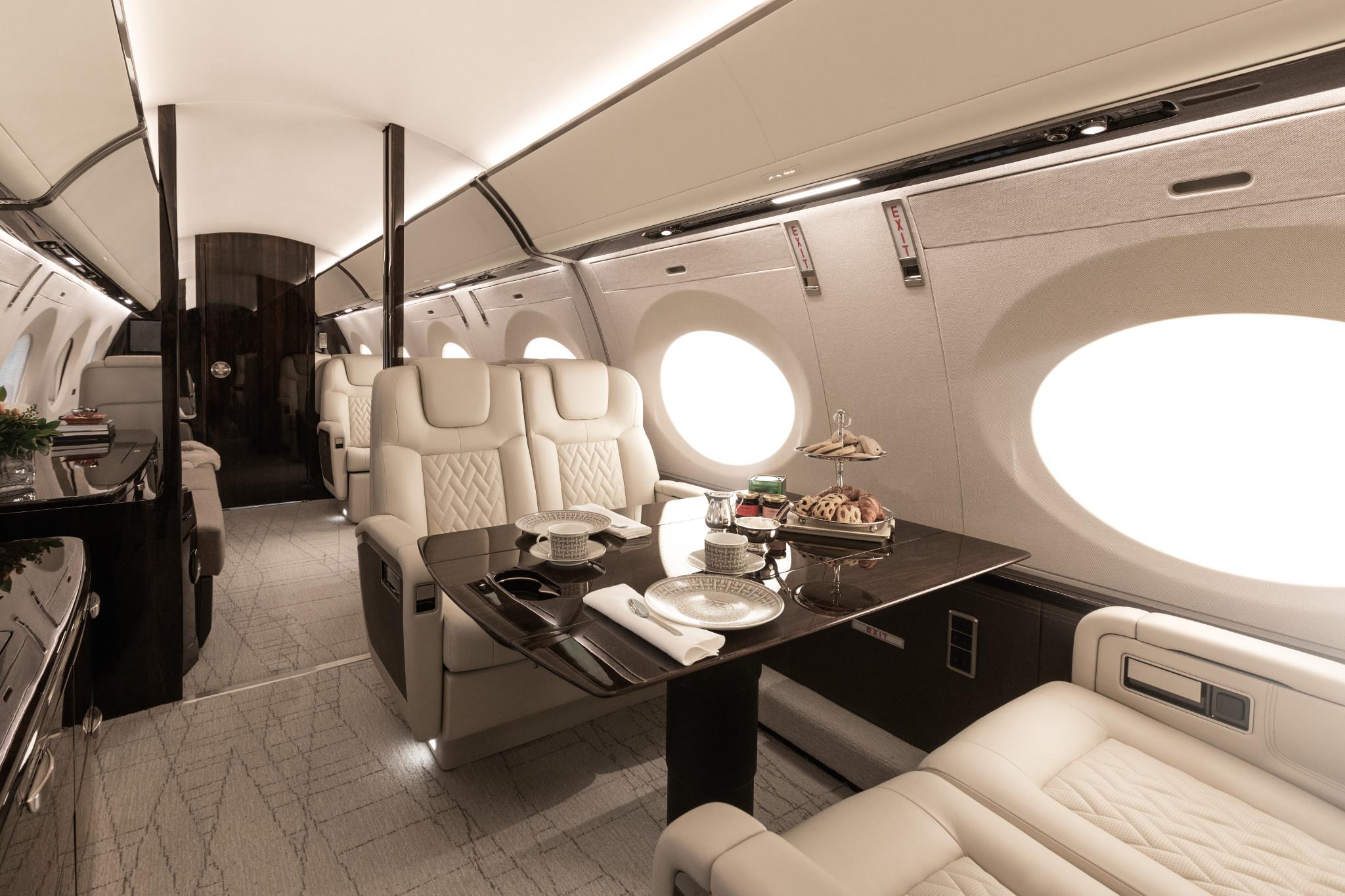
A new system that uses light to neutralize pathogens in business aircraft cabins is under development by Wichita-based lighting specialist PWI Inc. Known as Biotek Shield, the system employs UVC (ultraviolet C spectrum) light to neutralize pathogens, including bacteria and viruses, such as H1N1, SARS, West Nile, tuberculosis and coronavirus. The UVC spectrum, says company sales manager Eric Dahlinger, has “been shown to be the most effective against all types of pathogens.”
Dahlinger explains that Biotek Shield’s primary component is a UVC LED that can be installed within the existing duct work near the mixing chamber where outside air is combined with recirculated air from the cabin.
Prior to passenger boarding, Biotek Shield is ramped up, powered by the aircraft’s auxiliary power unit. “After 15-30 min. of air circulation treatment, it reaches 99.9999% level of virus control,” he points out. “Biotek Shield will draw power from the aircraft’s electrical system throughout the flight and prevent rapid duplication of pathogens, including COVID-19.”
Using a raytracing program, which measures the amount of light from a light source, as well as the level of reflected light within the environment encompassing the light source, PWI developed a design modification to its original concept, Dahlinger reports. “We made some changes to the design of the chambers through which the airflow moves and is exposed to the UVC light,” he says. “Specifically, we swirled the airflow inside the chambers, which maximizes its exposure to the UVC LED light. This provides improved UVC exposure and thus better virus neutralization, without slowing the airflow.” The more light exposure there is, the more effective the rate of neutralization, he adds.
As a result of the design modifications, the UVC LED anti-pathogen cabin system is smaller than the previous version. Dahlinger says that the redesigned system could potentially use less electricity to power the LED lights.
Under current planning, the new system’s certification is targeted for mid-year, with initial application on a business jet. Dahlinger reports that PWI is in discussions with a number of OEMs but has no announcement right now regarding the aircraft on which it will initially be applied.
Gulfstream Aerospace is providing “a fresh air” approach to maintaining a pathogen-free cabin as standard equipment on all of its jets. Steve Cass, vice president of sales development and support, believes it’s a game changer.
“We see our 100% fresh air systems as game changers because they rely on 100% fresh outside air that is incredibly sterile by the time it enters the cabin,” says Cass. He points out that since fresh air systems do not recycle cabin air, HEPA filters, which are used only for recirculated air, are not needed. “There is no need to have a filter for the outside air since it has already been compressed [hot temperature and pressure], making the air extremely sterile and clean from particulates.”
From a maintenance perspective, Cass says that HEPA filters need to be replaced at regular intervals--typically every 1,000 flight hours or about two years. “During that time, you can get mold and particulate matter buildup in these filters,” he adds.
Cass says that most commercial airliners and other business jets recirculate a portion of their cabin air, which, he says, goes through multiple cycles before it is eventually expelled. “Total time for the cabin to be fully replenished is significantly longer with a recirculated air system, versus our 100% fresh air system, which replaces the air--pushed to the outflow valve--with fresh air every 2-3 min.,” he says. “Odors and fumes are removed at the same pace.”
Gulfstream is also offering Aviation Clean Air’s (ACA) NeedlePoint Bi-Polar Ionization (NPBI) plasma ionization system as standard equipment on new production N-registered G650s and G650ERs. According to Cass, Gulfstream is still working with European Union Aviation Safety Agency (EASA) to certify the system for G500s and G600s.
“We have seen enthusiastic customer interest in possible retrofits and are readying a plan to make the system available for older models pending the certifications. We believe the market will be strong as customers rightly seek the additional peace of mind that comes with ensuring they’ve done everything possible to ensure the health and safety of their families and teams,” says Cass.
Editor’s Note: The first part of this article appears here.






